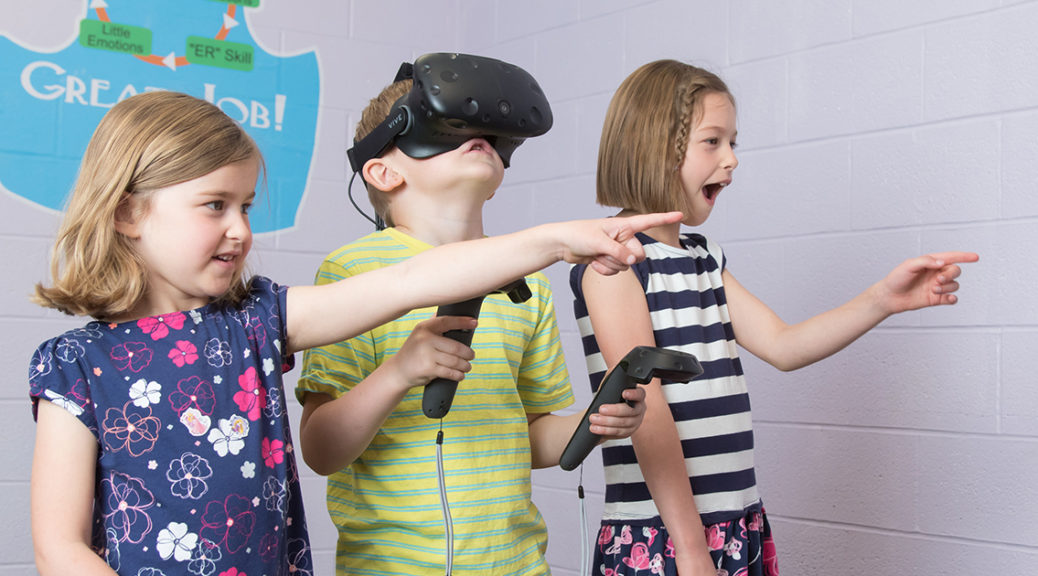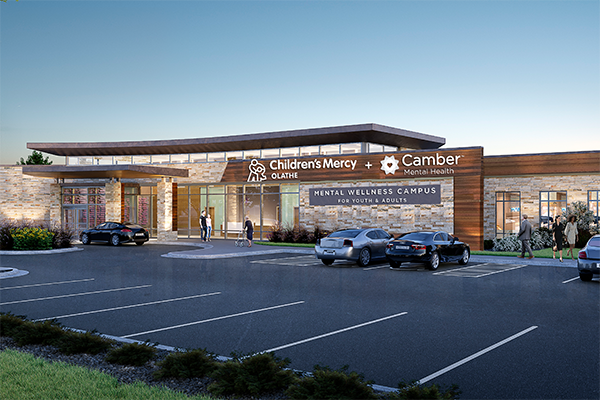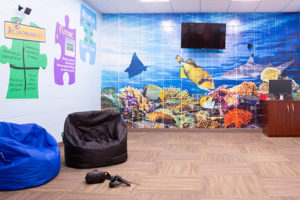How KVC Hospitals’ Learning Lab Enhances Child Therapy

Child therapy is often thought of as sitting on a couch and talking with a therapist. At KVC’s children’s psychiatric hospital, the therapists, counselors and staff members use more interactive ways to teach the youth receiving treatment about the brain and their emotions in the Learning Lab.
The KVC Learning Lab is a unique experiential learning center where youth with social, emotional and behavioral challenges participate in group activities to learn about the brain, how to regulate their emotions and use virtual reality to learn healthy skills.
Watch this video to learn more about the Learning Lab:
Why Building a Healthy Brain is Important
Healthy brain development is critical because it gives children the ability to self-regulate and problem solve.
“Scientific findings over the last decade has drastically changed the way we think about childhood development,” said James Roberson, Vice President of Program Services at KVC Hospitals. “What we know now is that the brain develops every second of every day. So, when we’re talking about a 12-year-old, we’re not just talking about a 12-year-old; we’re talking about 12 years of experiences. If those experiences have been positive, then the child’s brain will develop the skills necessary to be able to deal with life stressors. But the opposite is true as well. We’re not just talking about how to change a child’s behavior or get them to interact effectively with others. We’re really talking about changing their entire life and their health and wellness, even well into adulthood.”
To help youth build a healthy brain, KVC created the Learning Lab where each interaction is aligned with the most up-to-date science and research. It is taught in memorable and fun ways to the youth at KVC.
Skills Taught in The Learning Lab
- Body Regulation: skills that manage our body’s physical response to stress including breathing, muscle tension, and heart rate.
- Emotion Regulation: skills that help us identify, manage and express feelings that result from stress
- Interpersonal Skills & Safe Resources: skills that help us interact with others in a safe, positive manner and to avoid situations and activities that increase our stress and painful emotions.
- Executive Functioning: skills that enable us to solve problems, plan, focus, remember instructions and follow through with solutions despite distractions.
Related articles:






